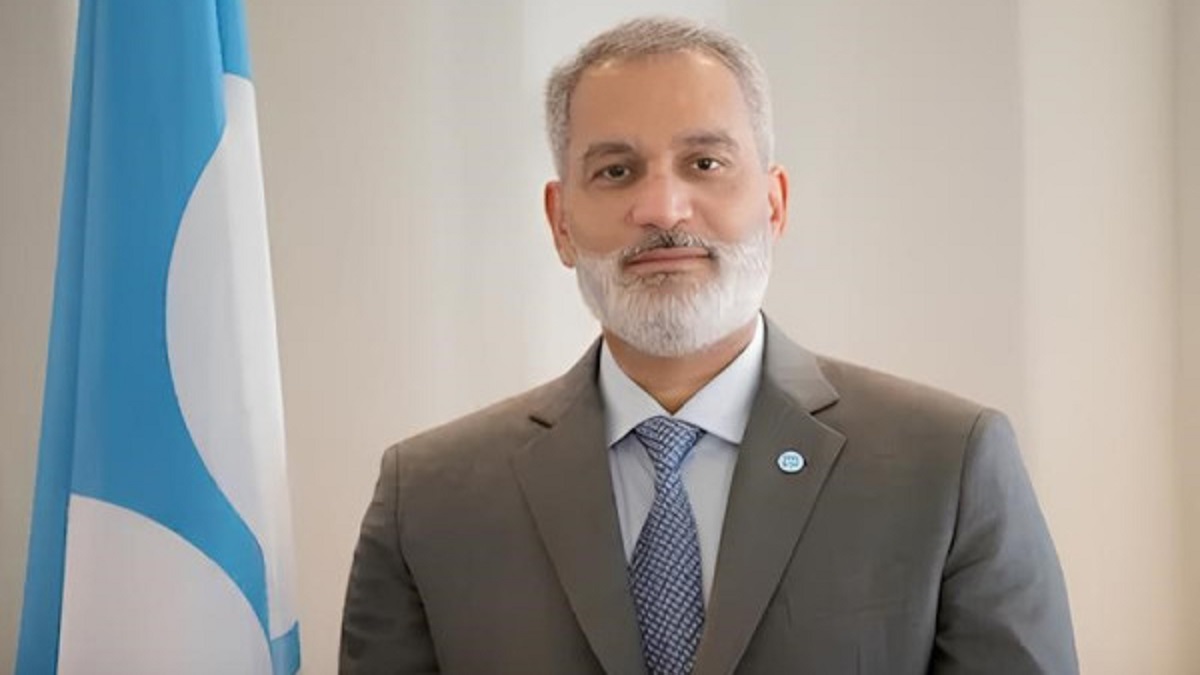Looking throughout our 63-year history, many significant meetings took place in African cities
PARIS, France, May 15, 2024/APO Group/ —
By OPEC Secretary General Haitham Al-Ghais.
Since assuming the office of OPEC Secretary General almost two years ago, I have had the privilege of visiting every African OPEC Member Country, as well as several other African countries. Every visit has reaffirmed my firm conviction that the future is bright for Africa and that the oil industry can play a constructive role in that future. Our Organization stands ready to offer any support it can to help this great continent realize its awesome potential.
OPEC takes great pride in its strong and enduring African connections, heritage and identity. Half of our Member Countries are African and this includes the continent’s most populous country, Nigeria, and the geographically largest by area, Algeria. We are also privileged to count Congo, Equatorial Guinea, Gabon and Libya as Member Countries. Additionally, two African countries are part of the historic ‘Declaration of Cooperation,’ between OPEC and non-OPEC producing countries, namely Sudan and South Sudan.
Our Organization’s past is imbued with African character. Looking throughout our 63-year history, many significant meetings took place in African cities. From the Ninth Meeting of the OPEC Conference in Tripoli in 1965, critical meetings and conferences have been held in Algiers (including our first ever Summit), Oran, Lagos, Abuja, Luanda, and Libreville.
Indeed, the idea for our Organization was conceived in Africa, specifically Egypt. It was at the Cairo Yacht Club in 1959, that the Gentleman’s Agreement was forged that paved the way for the establishment of OPEC in Baghdad in September 1960.
Having played a pivotal role in shaping our past, we have no doubt Africa will be instrumental in the Organization’s future and the future of the oil industry. This is a dominant theme in OPEC’s World Oil Outlook 2045 (WOO).
Africa has a young and vibrant population. By 2045, the Middle East and Africa are forecast to be the leading regions by overall population, adding 723 million people in the period 2022-2045.
We anticipate a bright future for Africa’s oil industry with substantial opportunities for growth. The continent is home to five of the top 30 oil-producing countries and its proven oil reserves amounted to around 120 billion barrels at the end of 2022. This will be crucial to meet the growing global demand for oil, which is expected to rise to 116 million barrels per day (mb/d) by 2045.
Having played a pivotal role in shaping our past, we have no doubt Africa will be instrumental in the Organization’s future and the future of the oil industry
These resources will be crucial in enabling African countries deliver for their peoples. For many oil-producing developing nations, oil production is a way to generate revenue streams that help address pressing and legitimate needs, such as development, employment, education, reducing poverty and investing in public services.
One of the great challenges facing governments here and, indeed, in many other parts of the world is energy poverty. There are 675 million people worldwide who lack access to electricity, four out of five of whom live in sub-Saharan Africa. Furthermore, 2.3 billion people without clean fuels and technologies for cooking, which can lead to a host of related health and environmental problems.
Of course, OPEC supports efforts that lead to a reduction in greenhouse gas emissions, but we look for this to be achieved in a manner that strikes a fine balance between energy security and sustainable development; ensuring that nobody is left behind. We are also strong advocates for the principle of common but differentiated responsibilities and respective capabilities.
The continent of Africa is home to 17% of the world’s population, but is responsible for under 4% of global CO2 emissions, with many African countries contributing virtually nothing to global emissions.
When we consider historic cumulative CO2 emissions, the G7 has contributed over 43% of the total alone since 1850, while OPEC Member Countries account for only 4%.
These statistics reflect the fact that there is no ‘one size fits all’ solution to addressing climate change and national circumstances need to be taken into account. We need an all-peoples, all technologies and all-energies approach. Technological innovation is a key focus for our Organization.
It is why our Member Countries are investing heavily in hydrogen projects, Carbon Capture and Utilization and Direct Air Capture facilities, and the circular carbon economy.
Looking at recent developments across the energy scene in Africa, we see opportunities for the oil industry in places like Namibia, Senegal, Mozambique and Mauritania, to name but a few. OPEC is attentive to these developments and stands ready to support all countries on the African continent in the next chapter in developing their industries. In this regard, we look forward to enhanced cooperation with the African Energy Chamber in the years and decades to come.
The African Energy Chamber, as the voice of the African energy sector, commends OPEC’s commitment to the growth of the African oil and gas industry.
Distributed by APO Group on behalf of African Energy Chamber.


 Energy4 days ago
Energy4 days ago
 Business4 days ago
Business4 days ago
 Business4 days ago
Business4 days ago
 Energy2 days ago
Energy2 days ago
 Business4 days ago
Business4 days ago
 Business4 days ago
Business4 days ago
 Energy3 days ago
Energy3 days ago
 Energy3 days ago
Energy3 days ago












